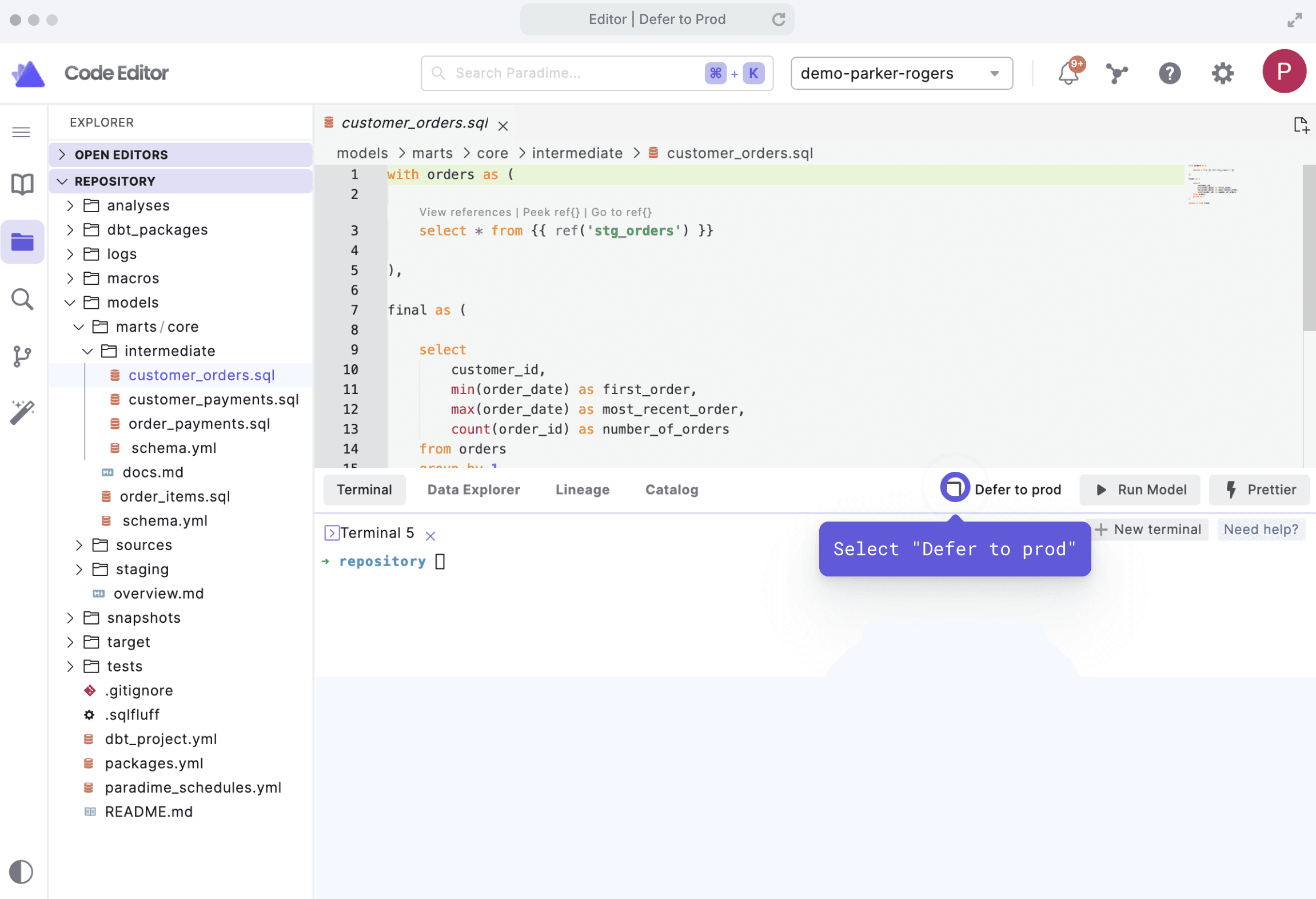Getting Started with dbt™ Defer
By deferring to a production database, you can test changes without impacting the main production environment.

Emelie Holgersson
Aug 8, 2024
·
1
min read
dbt™ defer allows you to run dbt™ models against a different database than the one specified in your target configuration. This is particularly useful in collaborative environments where multiple teams work on different aspects of data transformation. By deferring to a production database, you can test changes without impacting the main production environment.
Why Use dbt™ Defer?
Using dbt™ defer offers several advantages:
Improved collaboration: When multiple teams are involved, defer ensures seamless integration of changes without conflicts. Each team can work on their version of the database and defer to the production database to maintain consistency.
Risk mitigation: Testing changes in a production-like environment without affecting actual production data reduces the risk of errors. This allows for identifying and resolving issues before deploying changes to production.
Efficiency: Deferring to a production database eliminates the need to maintain multiple environments. This simplifies the development process, saving time and resources.
How to use is
Implementing dbt™ defer in your workflow is straightforward. Follow these steps:
Set Up Your Environment: Ensure access to the production database and the necessary permissions to run dbt™ commands.
Configure dbt™ Profiles: In your profiles.yml file, specify the target configurations for both development and production environments.
Use the Defer Flag: When running dbt™ commands, use the --defer flag to indicate that dbt™ should use the state of the production database. See example below.
Test Changes: Run your dbt™ models with the defer flag to test changes against the production database without affecting the actual data.
Quick Best Practices for dbt™ Defer to Prod
To maximize the benefits of dbt™ defer, especially when deferring to production, consider the following best practices:
Regularly update state files: Ensure state files are up to date to reflect the current state of the production database. This helps in identifying and resolving discrepancies early.
Automate defer runs: Incorporate defer runs into your continuous integration/continuous deployment (CI/CD) pipeline. Automation ensures consistent testing against the latest production state, providing early detection of issues.
Monitor performance: Regularly monitor the performance of your dbt™ runs with the defer flag. This helps identify potential bottlenecks and optimize workflows accordingly.
dbt™️ --defer to production in Paradime

Check out the full tutorial in Help Docs.
So why Paradime? We product-based pricing offers an alternative to the unpredictable costs of e.g. dbt Cloud™'s consumption-based model. Here’s why we stands out:
Predictable Cost: Enjoy fixed pricing that simplifies budgeting and eliminates unexpected charges as usage increases. Win 1!
Financial Transparency: Clear, straightforward pricing provides better value for users, ensuring no hidden fees. Win 2!
AI-Powered Productivity: Paradime's AI-driven code IDE boosts efficiency, making it a rather superior choice over legacy solutions like dbt Cloud™ - which has faced price hikes and complexity issues. Win 3 (+ AI makes it extra fun too)!
Schedule a call with our team to discover how AI-powered analytics engineering can maximize your impact on the business.
Wrap up
dbt™ defer is a powerful feature that can improve collaboration, mitigate risks, and improve efficiency in data management. Using it ensures robust, accurate, and efficient data transformation processes. Utilize dbt™ defer to streamline your workflow and achieve greater success in your data management tasks.












